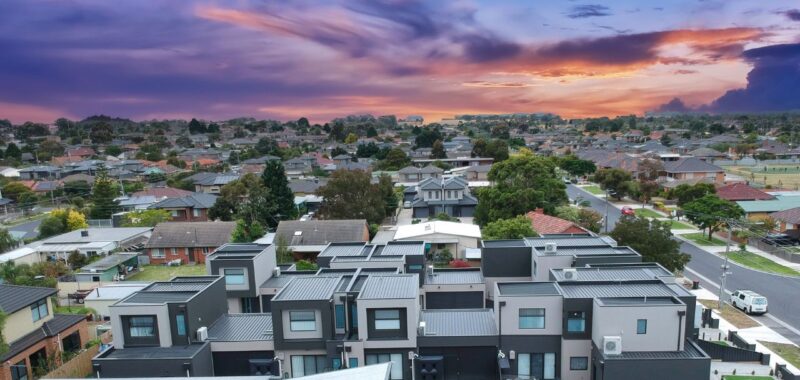Victoria’s once-booming property market is now struggling to keep pace with the rest of Australia, according to a leading economist.
Ray White Group Chief Economist Nerida Conisbee said Victoria’s complex and heavy property tax structure has led to a significant downturn in the state’s real estate sector.
“Both Melbourne and regional Victoria now hold the dubious honour of being the slowest property markets in Australia,” Ms Conisbee said.
“The vibrancy that once defined Victoria’s real estate sector has dimmed.”
Ms Conisbee said that Victoria now bears the unenviable title of having the highest property taxes in Australia, including land tax, stamp duty, council rates, and additional levies for foreign buyers and vacant properties.
“Come January 1, 2025, property owners will face yet another financial hurdle: AirBnb levies,” she said.
“While not strictly a property tax, this additional burden is expected to hit hard, especially in regional Victoria where short-term rentals are a significant part of the local economy.”
The consequences of this high-tax environment are far-reaching, according to Ms Conisbee.
“The backbone of the rental market – individual investors – are shying away and limiting the number of rental properties,” she said.
“With investor confidence at an all-time low, new developments, particularly apartment developments, are grinding to a halt.”

Ms Conisbee said that foreign investment, which previously fuelled Melbourne CBD’s residential boom, has all but disappeared.
“These investors, crucial in creating affordable rental accommodation for students, have now all but disappeared, deterred by higher taxes,” she said.
The commercial sector is also feeling the impact, with investors shying away from Victoria due to taxes targeting foreign buyers.
Ms Conisbee said that the property market’s health often serves as a barometer for the broader economy.
“With Victoria’s real estate sector in the doldrums, there are legitimate concerns about the knock-on effects on employment, economic growth, and housing affordability,” she said.
Looking ahead, Ms Conisbee suggested that Victoria’s ability to reclaim its position as Australia’s property powerhouse may depend on finding a balance between necessary taxation and creating an environment that encourages investment and growth.
“Without a significant shift in policy or market conditions, Victoria’s property market may continue to lag behind its interstate counterparts, potentially reshaping the state’s economic landscape for years to come,” she said.


